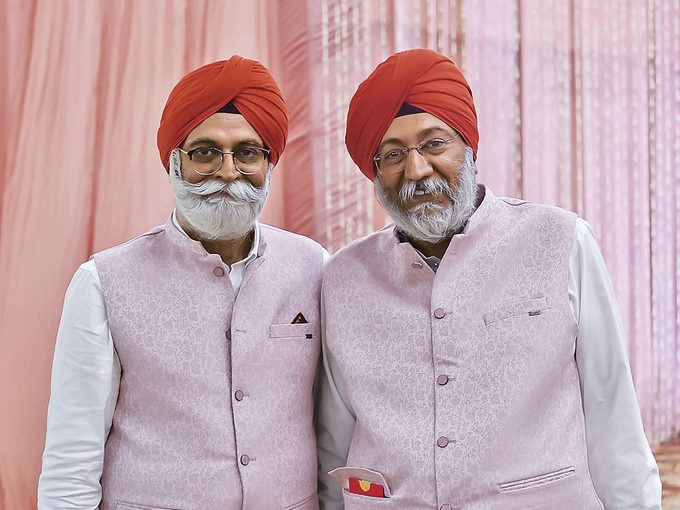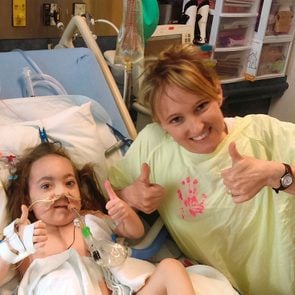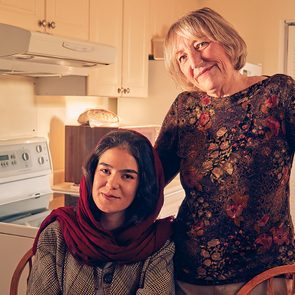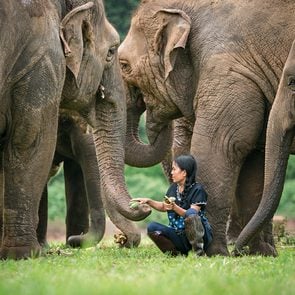These Selfless Brothers Are Helping India’s “Poorest of the Poor”
Through the Veerji Ka Dera organization, Delhi's Premjit and Kamaljeet Singh work long days to provide meals and first aid to the city's migrant workers.

Each morning at 6 a.m., even on weekends, Kamaljeet Singh, 57, is up and out of the house. He starts by spending three hours helping distribute food to nearly two dozen dropoff locations across Delhi, India, then checks on the numerous facilities run by the volunteer organization he leads with his brother, Premjit. The organization, Veerji Ka Dera (“dear brother’s sacred space”), was founded in 1989 by their father, Trilokchan Singh.
“He was charismatic and a very selfless man,” says Kamaljeet of his father, who died in 2010. A social worker who practised seva, or “selfless service,” a key element of the Sikh religion, Trilokchan wanted to do more to help people. In the 1980s, he began organizing volunteers to help him clean gurudwaras—Sikh temples.
From there, Trilokchan and his helpers began supporting one of India’s most underserved groups: the migrant workers who came to Delhi from rural areas. It started with a free breakfast, and eventually the group was also providing basic first aid for minor, often job-related, injuries. During this time, Trilokchan would begin his days as early as 4 a.m., then go to his paid job at 9 a.m., and end each day by volunteering in the evenings.
After his death, Kamaljeet and Premjit, inspired by their father’s lifetime of service, took over the organization. “We are continuing his legacy of helping the poorest of the poor,” says Premjit, 61, a retired brigadier with the Indian army. “Our aim is that no one goes hungry and uncared for in Delhi.”
Veerji Ka Dera now feeds about 2,500 daily wage workers and homeless people a day, in addition to providing basic medical care to as many as 500 people. The group operates a main building in west Delhi, several rented farms—growing crops such as wheat, mustard, millet and rice—an old-age home and medical, homeopathic and dental clinics. It even operates an animal shelter housing a few hundred rescued cows and buffalo.
It’s all made possible by the roughly 250 families who volunteer their time to cook, drive, nurse, farm and clean.
“My father said you have to have your own livelihood, that you should pray to the Lord and that you should share what you have,” says Kamaljeet. He and his wife, Raminder, juggle their volunteer work with managing their security-camera installation company, and they get help from their son and daughter-in-law, too. His other adult children, who now live abroad, have volunteered in the past, as have Premjit’s kids.
During the Covid-19 pandemic, the group’s farms had harvested bumper crops of wheat and rice. With special permission from the government and extra safety precautions, it doubled down to feed 5,000 people a day and offer medical care, including oxygen, to those in need.
In 2023, the group was named one of the Real Heroes of Rising India by broadcaster News18 India; the award was presented to them by the country’s health minister.
Premjit says that in the future he’d like to build a medical facility for the unhoused. Kamaljeet wants to install more solar panels on the group’s buildings and foster a self-sufficient ecosystem on its farms. Importantly, he wants to make sure Veerji Ka Dera continues even after he and Premjit are no longer able to run things.
Despite the size and scope of the organization, the brothers claim it causes them no stress. Premjit says spending time with his brother and the volunteers—especially young people—is “the best,” and a rewarding act of faith. “This work is worship for us.”
Check out more good news stories from around the world.






